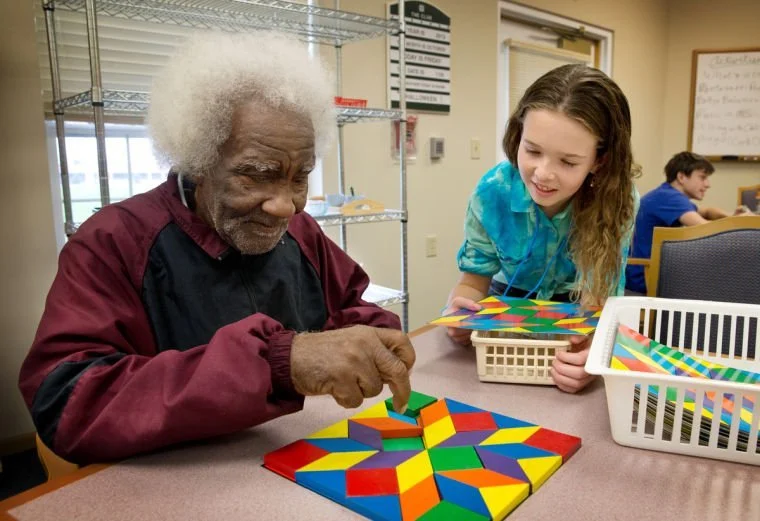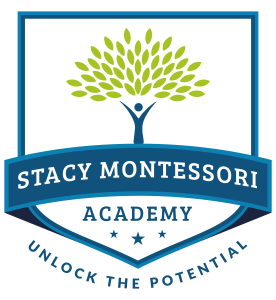Absorbent Mind
STACY MONTESSORI ACADEMY
The Montessori Method: Does It Help Dementia Patients?
In 2014, AMI invited Montessori and Dementia experts from across the globe to form the first Montessori Advisory Group for Dementia and Ageing (MAGDA).
The goal of the Montessori program is to support older adults and people living with dementia by creating a prepared environment, filled with cues and memory supports, that enables individuals to care for themselves, others, and their community.
Globally, nearly two-thirds of people with dementia reside in low- and middle-income countries and understanding how best to manage behavioural and psychological symptoms of dementia with non-specialist approaches is critical. One such approach is a non-pharmacological intervention based on the Montessori method.
One possible low-cost, accessible psychosocial intervention for behavioural and psychological symptoms of dementia is the Montessori approach. In the context of dementia care, this method has been tried in a research setting in people with dementia and found to be moderately effective in improving certain behavioural outcomes such as eating behavior’s, agitation and mood. This intervention is based on designing and offering activities that take into consideration the interests, needs, past experiences and preferences of the group or participants. It has been reported that participants demonstrated positive engagement with the intervention, suggesting that this may be a promising form of support to investigate and improve the care of people with dementia.
Montessori activities are simple, modifiable, and practical. A caregiver sets up a simple activity, with everyday items and allows those with dementia to complete the task. If the task is too easy, the caregiver can increase the difficulty. Completing a task can lead to a sense of accomplishment, while reconnecting them with a part of their personal history.
Here are seven simple ways to integrate the Montessori Method for parent with dementia.
1. Cognitive Skills
Cognitive activities can be performed in a variety of different exercises depending on the individual’s abilities. You can incorporate trivia, discussions about current events, and other brain challenges for loved ones with higher cognitive abilities. simple puzzles like matching words with objects or identifying famous landmarks are other tasks that allow the mind to stay active.
2. Life Skills
With dementia, an individual’s short-term memory may fade, but often their long-term memories remain intact. You can incorporate your loved one’s skills, history, and background into life skills activities.
3. Movement
Purposeful movements have many benefits for your loved one. Activities involving a full range of motion with slow movements can be calming and help your loved one remain active.
4. Sensory
Sensory activities are important and can help keep the whole mind alert. For smell, use scented candles with aromas such as citrus, lavender, cherry or vanilla. Ask your loved one to identify the scent. For touch, activities like identifying objects by picking them up are easy and adaptable depending on skill level.
5. Music
Music is a popular and effective way to engage those with dementia. Often, the part of the brain identifying music is one of the last affected. Listening to music, identifying songs, dancing with groups, and singing along with others are great group bonding activities.
6. Art
Those diagnosed with dementia still have a great amount of creativity. Have a loved one paint in a simplified setting.
7. Socialization
Dining is a great way to socialize because it is an activity that is done each day. It allows them to interact with others and share experiences.



